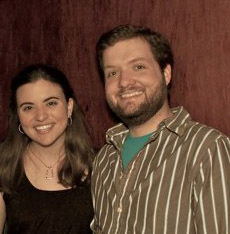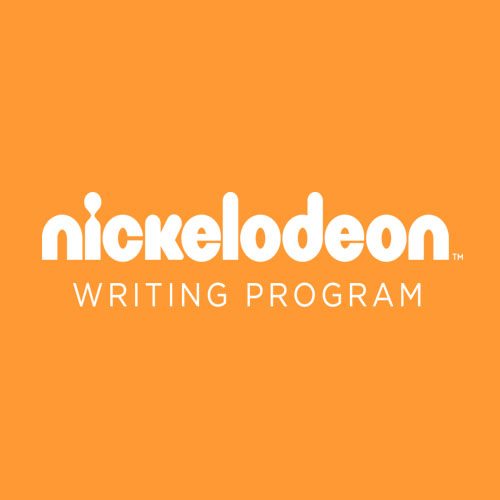i met juliana a few months ago here at nickelodeon when a group of us volunteered for the young storytellers foundation. once a week, we helped a group a 5th graders write their own screenplays, and it wasn’t long before we learned we were both writers going through different writing programs. i asked her to do this interview, and she was kind enough to share her story.
What spec did you submit to get into the NBC Writers on the Verge program? What made you pick that show?
My husband Josh and I wrote a spec of The Good Wife. I read a really moving newspaper article about people who accidentally killed their babies by leaving them in their hot, parked cars for hours. One particular case that was discussed seemed tailor-made for a law show, and we were in love with The Good Wife. It seemed like the perfect fit.
How many scripts did you write before you were accepted? Did you submit to the other writing programs?
We had written 5 and ½ specs (Doesn’t everyone have that one that they didn’t finish?) and 3 pilots. Over the 5 years that we had been writing together, we have applied to programs every year – with no luck. It was starting to feel like an exercise in futility – sort of like when you buy a lottery ticket. Why not, you know? So we were more than a little shocked when we got a call from NBC.
What was the NBC program like?
The program is 12 weeks long. You have classes every Tuesday and Thursday for the first 10 weeks. The Tuesday classes are writing classes, and Thursday classes are for developing other skills, like taking meetings. In the first 4 weeks, you finish a spec script, and in the remaining 6 weeks of classes, you finish a pilot. Whatever the writing assignment was for that week, such as completing an outline, it would be due that Sunday by noon. Then everyone read each other’s work and came to class on Tuesday prepared to give notes.
You are also assigned two mentors, one current series executive and one development executive. They give you feedback on your ideas and your scripts. During one of our Thursday classes, we had a “speed dating” session where we met with a number of other NBC executives.
You and your husband write together, and were accepted into the NBC program together. What’s it like to write as a partnership?
Writing with a partner has a lot of advantages. You always have someone to bounce ideas around with, for one. You have someone to give you notes on your drafts. And you have someone to fret with about the business side of things. During a meeting, if you draw a blank, your partner can swoop in and take over, and afterwards, you can compare notes about how you think it went. The big disadvantage, of course, is that you share a paycheck.
As for our writing process together, Josh and I always break the story together. This is usually the most time-consuming part for us. Because we work as a team, we like to have a complete and very detailed outline before we split to do pages. Often, it will take us twice as long to get the outline done as it will to write the actual pages of the first draft.
When the outline is done, he take scenes 1, I take scene 2. Then we swap and edit each other’s pages, and move on to scene 3 and 4 in the same way.
The NBC program is part time. How hard was it to keep up with the workload while working a full time job?
It was really tough for me. I was starting a new position at the time, and we were finishing up ghostwriting a book for a client. And then someone rear-ended me in a parking lot, so I had to deal with the repairs for that. And then we had a major leak in our kitchen. (We’re still dealing with the repairs for that one.)
The only reason we made it through with most of our sanity intact is that the show Josh was working on ended pretty early on in the program. But even with him at home during the day, if I could go back and do it all over again, I would probably have quit my job to focus on the program. It was a lot of work in a short period of time, but after having gone through all that, I now feel confident that I can meet any deadline in a professional environment. You want a completed outline by tomorrow? No problem. It may not be perfect, but I know I can get it done.
Can you talk about what happened after the NBC program?
The program does a really great job of helping you make connections. Once everything is done, they send your work out to representatives they know who they think would be a good fit for you, and they have a “coming out” party where you meet with different agents, managers, and executives. Because of the program, we have a team of managers working to get our stuff out there and set meetings for us. We feel really lucky to have them.
I think some people think you have to be a minority to get into these writing programs, and either don’t apply or don’t think they’ll get in because they might not think they’re diverse. Can you share any thoughts on that?
Josh and I weren’t sure if we would qualify as diversity writers because I’m Brazilian-American, but he is as white as they come. Apparently, only one of you needs to be diverse to qualify, just in case there are any other partners out there wondering. But if you don’t have a partner and you have no “diverse” background, I still think it’s worth applying. First of all, it’s free, so why not? But also it is possible. Yes, it hurts your chances, but in the NBC program, we had one set of writing partners who were both white dudes, but they still got in. Also, I believe that some of the programs do not have minority requirements.
What kind of hours did you put into writing, before and during the NBC program?
During the NBC program, every hour that I wasn’t at work or sleeping was dedicated to writing. I even worked on it during my lunch hour or downtime at work. It was literally non-stop for us. Before that, we would usually work 6 to 8 hours on the weekend and a few hours during the week.
What’s your writing process like? Any idiosyncrasies?
I refer to my technique as the “vomit and clean-up.” I get all the ideas floating around in my head onto the page. I just get it out there. I think I’m afraid that if I don’t get it down right away, I’ll lose it. Then I go back and work on putting things in order and having it all make sense.
Josh’s technique is very different. He goes line by line, not moving on until each one is as close to perfect as he can get. (And honestly, they usually are pretty damn perfect when he’s done.) It’s slower, but when he’s done with a first draft, it’s usually closer to being “done” than my first drafts are.
What makes a script stand out to you, both good and bad?
I’m a stickler for grammar errors and typos. They drive me crazy. One or two? It happens. But final drafts that are rife with errors drive me crazy. I just think it’s lazy, and that laziness is usually reflected in other parts of the writing – plot, character, dialogue, etc.
Good writing is hard to quantify, but easy to spot. For me, I can’t put the script down because I’m so invested in the characters’ journey.
How has the NBC program helped you grow as a writer?
I think the program pushed us to think more about the nuts and bolts of writing, as well as things we generally think of more as the “business” part. For specs, this translated to really using the formula of the show when writing an episode. So many times writers give the advice to right a spectacular spec if you want to get noticed – and that’s true – but it has to be completely within the framework of a typical episode. Don’t make the show fit your idea – make your idea fit the show. And when coming up with ideas for pilots, we really had to learn how to pitch – especially from a logline. We tend to like detail and world-building when we’re coming up with something new, but they were adamant about starting and selling the idea from a logline, and it really helped us to focus on the basic concept we wanted to explore and make sure it was a strong one.
Any advice for aspiring writers?
There will be a lot of ups and downs. Pursuing a career as a writer – or any artistic pursuit – can be rewarding, but it will also break your heart over and over again. So be prepared for that. That emotional rollercoaster can put a strain on you physically and mentally, so stay healthy. Exercise, eat well, and visit your doctor. And occasionally, indulge in a night of binge drinking.
– – –
thanks to juliana for taking the time to share so much great information and advice! you can follow juliana and josh on twitter at @WeissRoessler, and check out their blog at http://boregenerations.blogspot.com.
i’ve done several of these interviews now, and you can see the common thread of hard work and persistence in each of the writers’ stories. i hope everyone has found them to be as inspirational as i have!


Great interview, Kiyong. Very insightful. I’ve heard good things about the Writers on the Verge program and the people who come out of it.
Great job, Kiyong, and thanks to Juliana for participating.
Just discovered your blog, Kiyong. Great interview! I’m an aspiring TV writer, so it’s cool to get some info from insiders like yourself and Juliana. I’ll look out for more posts. Best of luck with the Fellowship!
thanks, and best of luck to you with your writing!
great interview giving us hope to apply for these programs with more intensity.
the interview was frank and honest. that is why it feels inspiring!!
cheers,
ron
great interview and blog, kiyong! came over from john august’s and immediately subscribed. thanks!
Great interview! It’s hard to find good first-person accounts of NBC’s WOTV. Excellent question about the diversity aspect, too. I’m white so I’m hoping that being a female comedy writer still sort of counts as “diverse.”